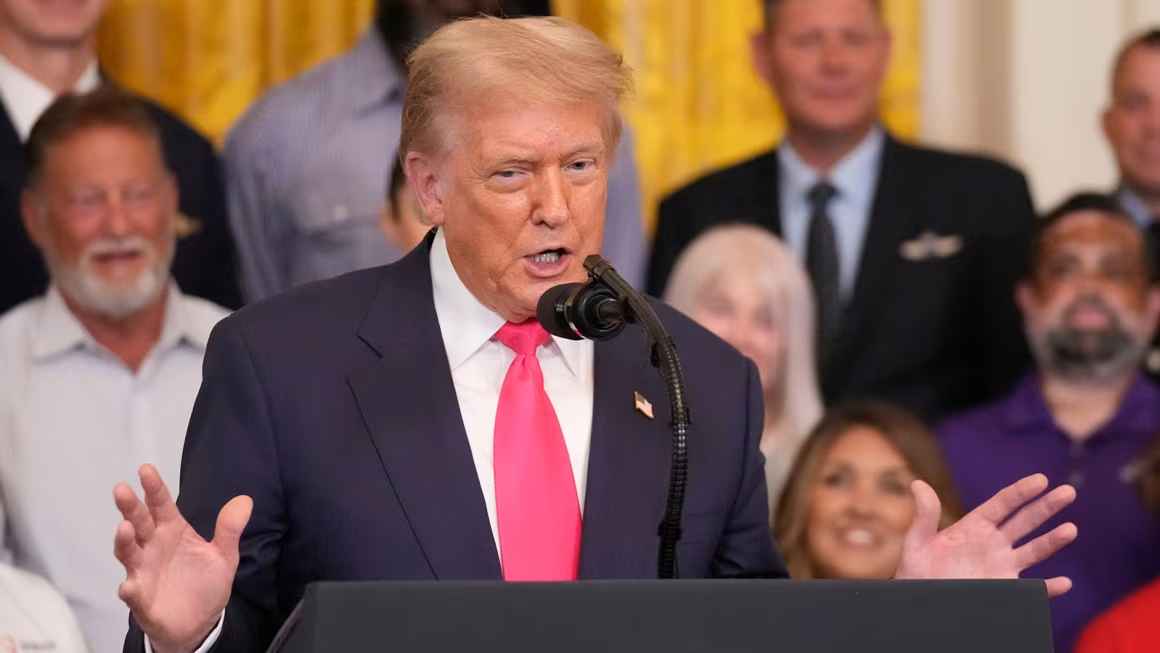
China announced on Friday that it will permit the transfer of rare earth minerals to the United States, hours after White House officials said the two sides had struck an agreement, in what would be a significant milestone after weeks of talks over US access to the vital elements.
Rare earths, which are used in everything from ordinary electronics to fighter jets, have been a major source of trade friction between the world’s two largest economies in recent weeks, as their tit-for-tat tariff escalation has turned into a supply chain battle.
“China will permit the export of regulated commodities that meet the legal requirements. The United States will accordingly cancel a number of restrictive measures imposed on China,” China’s Ministry of Commerce said in a statement.
The comment was intended to respond to a specific inquiry about how “China will accelerate the export of rare earths to the United States.”
The Chinese declaration came after US President Donald Trump and Commerce Secretary Howard Lutnick said Thursday that the two sides had achieved an agreement.
The accord appears to formalize an agreement agreed between the two sides earlier this month in London, which the US stated at the time required approval from Trump and Chinese President Xi Jinping.
According to Bloomberg News, US Commerce Secretary Howard Lutnick stated on Thursday that China is “going to deliver rare earths to us” and that once they do, “we’ll take down our countermeasures,” referring to the export curbs imposed on China in May after US officials accused Beijing of failing to honor a deal reached that month in Geneva by halting rare earth exports.
At a White House event on Thursday, Trump stated, “We just signed with China yesterday,” without further explanation.
In a statement issued Friday, China’s Commerce Ministry expressed confidence that the two sides could “continuously enhance consensus, reduce misunderstandings, strengthen cooperation, and jointly promote the healthy, stable, and sustainable development of China-US economic and trade relations.”
Rare earths in focus
The International Energy Agency estimates that China controls around 90% of worldwide rare earth processing.
Last month, the two countries reached an agreement in Geneva to de-escalate hefty tariffs that had resulted in a de-facto trade embargo, but that agreement quickly fell apart due to the Trump administration’s frustration that China was not lifting export controls on rare earths imposed in response to Trump’s so-called reciprocal tariffs on China in April.
In reaction, the US put export restrictions on chips, software, ethane, and jet engines, threatening to revoke Chinese students’ US visas. China claimed to be in compliance with the agreement and criticized Washington for failing to keep its promises.
In June, officials from both sides met again in London to negotiate.
Following the negotiations, Trump announced that a deal had been struck, subject to ratification by both national leaders, and that both parties had agreed to reduce export restrictions. Trump also stated that the United States will allow Chinese college students to attend American universities.
“Magnets and any necessary rare earths will be supplied upfront by China,” he stated on social media at the time.
According to Reuters, the US Commerce Department has approved ethane traders to put ethane into vessels heading for China. However, it has barred ships from offloading in China without license, which experts view as an indication that the administration is planning to ease the restrictions.
Under China’s dual use license scheme for rare earths, exporters must acquire permissions for each shipment to customers in any country and provide documents to verify the commodities’ intended end use.
While China has repeatedly stated in recent weeks that it is “speeding up” the approval of rare earth export licenses for “compliant” applications, experts and industry insiders have told CNN that many companies are still struggling to secure adequate supplies of these critical elements and magnets.
Analysts also expect China’s dual-use export restrictions to continue prohibiting shipments to military suppliers, denying US defense contractors access to such components.

Leave a Reply